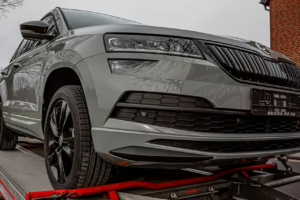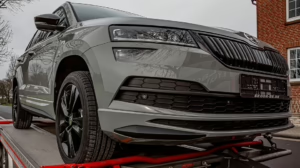The Reliability Report: Comparing the Most Trusted Car Brands of the Year
In an era where automobile technology progresses rapidly and consumer expectations soar, the reliability of vehicles remains a cornerstone of car ownership. As potential buyers research their options, they often look to reliability reports that rank brands based on a combination of consumer feedback, ownership experiences, and expert assessments. This article delves into the reliability reports of the year, comparing the most trusted car brands and offering insights into what makes each brand stand out.
Understanding Reliability in the Automotive Context
Definition of Reliability
Reliability in the automotive world refers to a vehicle’s ability to perform consistently without frequent repairs or issues. Factors influencing reliability include build quality, engineering, maintenance requirements, and the overall lifespan of the vehicle. Many consumers equate low maintenance costs and infrequent breakdowns with brand reliability.
Importance of Reliability
When purchasing a vehicle, reliability can significantly influence buyer decisions. This shift toward prioritizing reliability stems from a growing trend of buyers valuing long-term ownership experiences over short-term financial incentives. According to a survey conducted by Consumer Reports, reliability is a key factor for 80% of new car buyers, highlighting its importance in the decision-making process.
Methodology of Reliability Reports
Various organizations conduct comprehensive studies and surveys to create reliability reports. These assessments typically draw on numerous metrics, including:
-
Owner Surveys: Feedback from existing vehicle owners about their experiences, including any repairs and maintenance issues.
-
Repair Frequency: Data on how often specific models require repairs and the associated costs.
-
Mechanical Failures: Insights from technicians and service departments about common issues encountered with specific models and brands.
- Longevity: Comparisons of how long different brands and models last before major breakdowns or failures.
Leading Organizations
Several organizations are renowned for their reliability rankings:
-
Consumer Reports: Conducts annual surveys spanning millions of vehicles to breed comprehensive overviews of vehicle reliability.
-
J.D. Power: Known for customer satisfaction surveys and the Initial Quality Study (IQS), which assesses new vehicles’ initial performance and quality.
- RepairPal: Aggregates data from thousands of auto repair shops to provide average repair costs, thereby informing consumers of potential expenses related to different makes and models.
The Most Trusted Car Brands of the Year
1. Toyota: The Undisputed Champion
Toyota consistently ranks at the top of reliability reports, earning a reputation built on decades of quality engineering and consumer trust.
Strengths
-
Durability: Vehicles like the Toyota Camry and Corolla are celebrated for their long lifespans, often exceeding 200,000 miles with proper maintenance.
-
Resale Value: The brand also maintains excellent resale values, owing to its reputation for reliability and performance. According to Kelley Blue Book, Toyota vehicles frequently dominate the best resale value rankings.
- Hybrid Technology: Toyota pioneered hybrid vehicles with the Prius, showcasing innovation harmonized with reliability. The hybrid system of Toyota models has proven dependable and efficient, further solidifying buyers’ confidence.
Challenges
While Toyota boasts exceptional reliability, some consumers note that models can feel less engaging or dynamic than competitors. The focus on reliability sometimes leads to conservative design choices, which might not excite enthusiastic drivers.
2. Honda: A Close Second
Honda ranks closely behind Toyota, acclaimed for its reliable engines and well-crafted vehicles.
Strengths
-
Engineering Excellence: Renowned for its engineering quality, Honda vehicles like the Civic and Accord commonly get high marks in consumer satisfaction surveys.
-
Resale Value: Similar to Toyota, Honda also commands strong resale value. Cars from this brand are seen as investments that retain worth over time.
- Driving Experience: Honda often strikes a balance between reliability and engaging driving dynamics, appealing to those who appreciate a responsive vehicle while valuing dependability.
Challenges
The internet occasionally showcases a few controversial recalls, which can tarnish the brand’s pristine reputation. Even so, these instances are typically viewed as isolated and handled efficiently by the company.
3. Subaru: All-Wheel-Drive Reliability
Subaru has solidified its place as a trusted brand, particularly among outdoor enthusiasts and individuals living in inclement weather regions.
Strengths
-
All-Wheel Drive Systems: Subaru vehicles typically come equipped with standard all-wheel drive, making them reliable choices for various driving conditions.
-
Safety Ratings: The brand consistently earns high safety ratings from organizations like the Insurance Institute for Highway Safety (IIHS), instilling consumer confidence.
- Loyal Community: Subaru enjoys a cult-like following, with many owners remaining brand loyal, often purchasing multiple vehicles over the years.
Challenges
Some models may face criticism for being less fuel-efficient compared to competitors. Additionally, while Subaru vehicles are reliable, they typically come with lower power outputs, leading some drivers to seek more performance-oriented options elsewhere.
4. BMW and Mercedes-Benz: The Performance Contenders
Luxury brands like BMW and Mercedes-Benz often face scrutiny regarding reliability. Still, certain models manage to shine in reliability rankings.
Strengths
-
Performance and Luxury: Owners often cite the thrill of driving high-performance vehicles and appreciating the luxurious features available in their cars.
- Customer Satisfaction: Models like the BMW 3 Series and Mercedes-Benz C-Class often score high in customer satisfaction, with owners touting the driving experience.
Challenges
Luxury vehicles come with high maintenance costs. According to RepairPal, the average annual repair cost for these models is significantly higher than mainstream brands. Reliability can vary more widely with luxury cars, often depending on how well the vehicle has been maintained and whether it has been previously owned.
5. Kia and Hyundai: The Rising Stars
Kia and Hyundai have rapidly ascended in reliability rankings, showcasing impressive strides in quality and consumer satisfaction.
Strengths
-
Warranty Programs: Both brands offer generous warranties, which reassure consumers about potential repair costs. Their 10-year/100,000-mile powertrain warranties are among the best in the industry.
-
Value for Money: Recent models demonstrate strong reliability, and the price-to-quality ratio is favorable, attracting buyers seeking good deals.
- Manufacturing Improvements: Ongoing enhancements in manufacturing processes and technology adoption have led to improved reliability ratings over the past years.
Challenges
As they continue to build their reputations, older models may still face some perceived reliability issues, predominantly stemming from earlier vehicles produced before their quality improvements.
The Role of Consumer Feedback
Consumer feedback plays a pivotal role in shaping reliability rankings. As manufacturers embark on rigorous testing and engineering, shoppers utilize online reviews and community feedback as primary resources.
Online Reviews and Forums
Forums such as Reddit, VehicleHistory, and Edmunds feature discussions among consumers regarding vehicle experiences that provide potential buyers with invaluable first-hand insights. VehiclePhoto.gov approximately reports that nearly 70% of consumers research online reviews before making a purchase decision.
Social Media
On platforms like Instagram or TikTok, influencers frequently share their user experiences with particular brands, resonating with younger generations and guiding purchasing decisions in real-time.
The Future of Automotive Reliability
As technology advances and modern electric vehicles (EVs) gain traction, the metrics for reliability may shift. Battery efficiency, electric motor performance, and the lifespan of digital integrations become crucial factors in consumers’ decision-making processes.
The Rise of Electric Vehicles
With brands like Tesla, Ford, and Chevrolet investing heavily in electric technology, the reliability of EVs will serve as a key differentiator as consumers transition away from traditional gas engines. Reports from sources such as J.D. Power indicate early signs of increased consumer confidence in electric vehicle reliability driven by positive user experiences.
Autonomous Vehicles
Further, the rise of autonomous vehicle technology incorporates emerging metrics for reliability as artificial intelligence systems can influence safety, efficiency, and maintenance needs. Industries may find new ways to assess reliability through data collected from interconnected vehicles.
Conclusion
As the automotive landscape continues to evolve, understanding reliability remains crucial for prospective buyers. Traditional champions like Toyota and Honda maintain strong performances in reliability while emerging competitors like Kia and Hyundai solidify their places by offering great value and dependability.
Consumer preferences will always shift based on technology advancements, driving experiences, and brand perceptions. However, the fundamental need for reliability will continue to guide buyers in making informed decisions.
In the end, regardless of changing trends, consumers will consistently seek brands they can trust, making reliability a timeless valuate within the automotive sector. By understanding the landscape of trusted brands and their performances, buyers can navigate toward selections that foster dependable, long-lasting relationships with their vehicles.
Footnotes
- Consumer Reports, "2023 Auto Reliability Survey."
- Kelley Blue Book, "Best Resale Value Awards."
- RepairPal, "Annual Auto Repair Costs."
- J.D. Power, "2023 Initial Quality Study."
- Edmunds, "How Online Reviews Impact Automotive Purchases."
This article has provided a comprehensive look at the reliability of various car brands, taking into account consumer feedback and industry assessments, as well as emerging trends in automotive technology. The future looks promising for reliable vehicles, paving the way for a balanced combination of innovation and trustworthiness.


























Add Comment